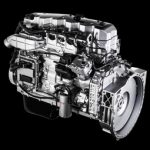Amaglug-glug

South Africa is experiencing an increase in new and more-advanced vehicles with particular fuel requirements. How ready are fuel companies for these changes, in terms of the quality of the fuel they are producing? CLAIRE RENCKEN reports.
“Modern vehicles employ advanced exhaust after-treatment devices to remove certain components from the engine exhaust and these devices require an appropriate fuel to enable them to function optimally,” explains Thomas Kock, manager: technical services, retail and commercial at Sasol.
“The key parameter is the sulphur content of the fuel, as sulphur has a detrimental effect on the catalyst used in these devices. Fuel standards in South Africa are regulated by law and it is acknowledged that these standards lag behind those of developed countries.
“Current plans by the South African Department of Energy are to move the country’s fuel standards closer to international standards (for example, the Euro-5 emissions standard) via the legislated South African Clean Fuels 2 specifications,” he adds.
The implementation of these specifications has been delayed, however. “Sasol, as a leader in ultra-low sulphur technology fuels, has, in the meantime, introduced Sasol turbodiesel ULS 10 parts per million (ppm), which is suitable for the latest-technology vehicles. Sasol also supplies petrol with a similar low-sulphur content, which is available on Sasol forecourts, supplied by the Sasol Secunda refinery,” says Kock.
So, you might ask, what are companies such as Sasol doing to enhance the quality of their fuel? “Quality is a relative concept and could have different meanings depending on the context. Quality could mean the ‘right quality’ to enable new vehicle technology, the ‘right quality’ to ensure fit-for-purpose (or no-harm) operation or the ‘right quality’ for performance. Sulphur content is but one parameter (although one of the more critical ones) to describe fuel quality,” responds Kock.
He goes on to say that, while enabling technology is largely addressed by the ultra-low sulphur content, Sasol fuels also contain advanced additive technology to ensure that they are both fit for purpose and deliver superior performance.
“Furthermore, Sasol constantly has to find innovative solutions to the challenges of the day. One of the never-ending challenges is fuel consumption. For this reason, we are constantly looking at and testing new additive technologies to keep the engine and fuel systems clean and free of deposits, reduce internal friction in the engine, and assist the combustion process to optimise fuel consumption,” Kock explains.
“Despite our international presence, Sasol remains a South African company, which means that our fuels (and lubricants) are developed and tested under local conditions in our world-class research facilities, for the South African market. Our products are continually being developed and optimised. It has been proved that they deliver high performance, while at the same time providing optimum fuel economy,” he concludes.
Caltex strives to make good diesel better
On average, modern diesel vehicles burn 30 percent less fuel and produce 25 percent less carbon dioxide emissions than petrol vehicles. Diesel contains sulphur, however, which can be damaging to the environment. Standard diesel is classified as 500 parts per million (ppm). Lowering the ppm concentration of sulphur results in better diesel for the environment and for vehicles.
With Caltex’s Diesel 50 with Techron D, all diesel vehicles can benefit from the use of low-sulphur diesel. Caltex has introduced its 50 ppm diesel to accommodate the increasing number of new diesel vehicles entering the South African market that are specifically designed to operate on a maximum sulphur level of 50 ppm. Many 4×4 vehicles, for example, require low-sulphur diesel in order to perform optimally.
The exclusive Techron D additive has been tried and tested. It controls deposits, helps maintain fuel injector cleanliness and enables optimum engine performance. As with any engine, keeping the fuel injectors clean is critical, since deposits can foul the injector spray pattern and hinder the fuel/air mixing process, which can result in decreased fuel economy and increased emissions.
Since the injectors are located inside the cylinder’s combustion chamber, a diesel engine’s injectors are exposed to tremendous heat, which makes them especially vulnerable to deposit formation.
In the latest diesel engines in particular, each hole in a fuel injector nozzle may be as small as the width of two human hairs. The potential for negative consequences arising from injector deposits is therefore increasing as diesel engines become more sophisticated, and the need for clean injectors is greater than ever before.
During the course of its development, Chevron tested the performance of the Techron D additive in both old and new diesel engines, as well as in a range of diesel fuel types, including biodiesel.
Published by
Focus on Transport
focusmagsa




